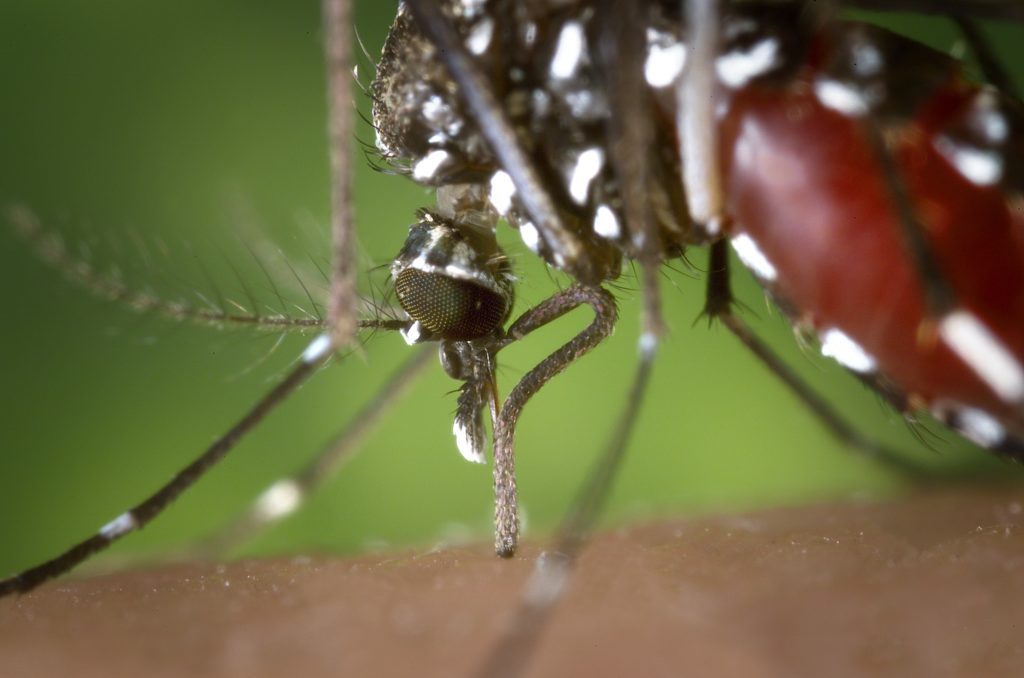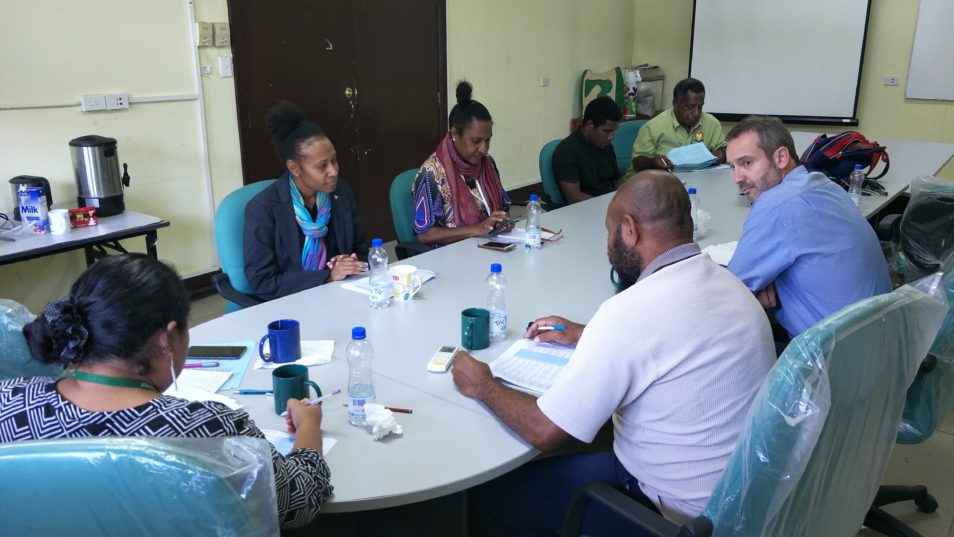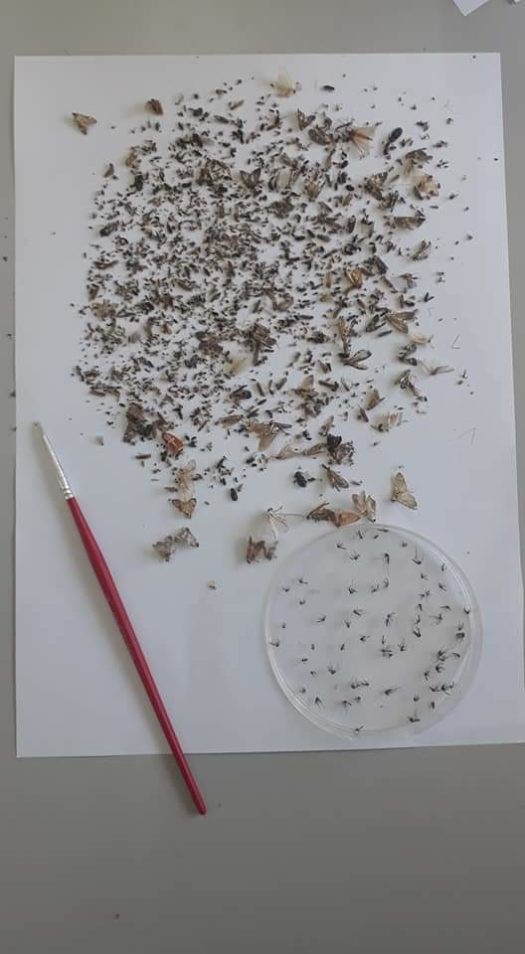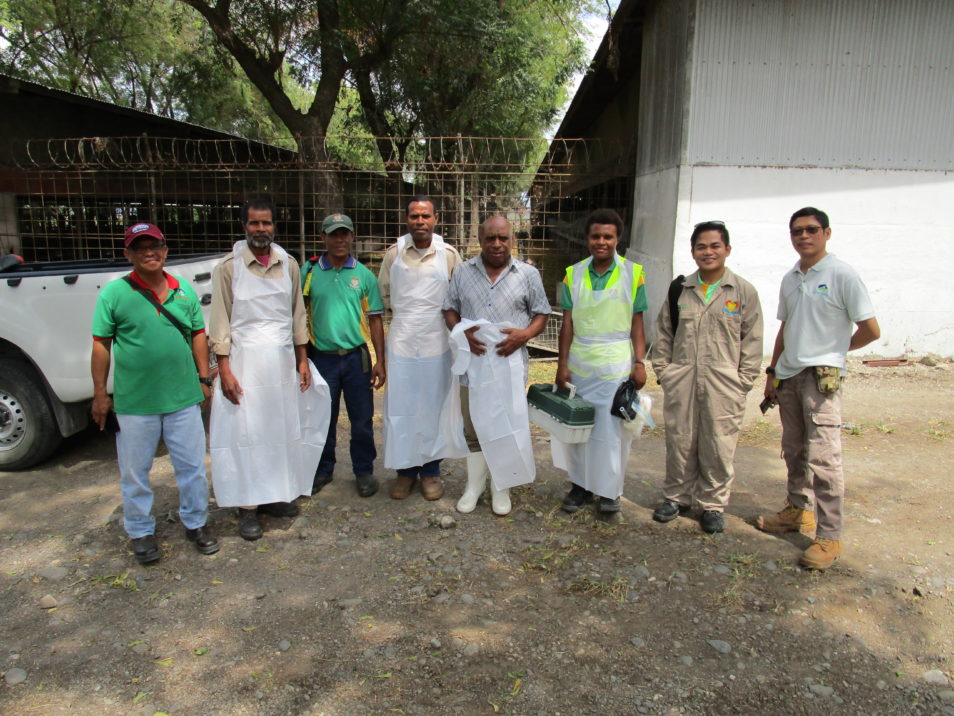
The proboscis of an Aedes albopictus mosquito feeding on human blood. This mosquito, also known as the Asian Tiger Mosquito, is a known West Nile Virus vector.
Photo by James Gathany, Centers for Disease Control
We’re applying a ‘One-Health’ approach to minimising mosquito-borne diseases in Papua New Guinea.
Mosquitoes are one of the deadliest animals in the world. Their ability to carry and spread disease to humans causes millions of deaths every year.
David Williams, one of our scientists, is leading a project called ZAPPA in Papua New Guinea (PNG). The project is funded by the Australian Centre for International Agricultural Research (ACIAR) and the Australian Government’s Department of Foreign Affairs and Trade (DFAT) Indo-Pacific Centre for Health Security. The aim of the project is to help minimise the impact of mosquito-borne disease outbreaks.
So, here’s how we’re implementing a ‘One-Health’ approach to zapping mosquito-borne diseases in Papua New Guinea.
A One-Health approach to ZAPPA those zoonoses
Zoonoses are diseases transmitted between animals and humans. And that’s how this project, ZAPPA, got its name. It stands for Zoonotic Arthropod-borne virus Project PNG-Australia. Why? Because mosquitoes are arthropods.
Fighting zoonoses calls for a ‘One-Health’ approach, which means people from different areas of science work together to achieve better public health outcomes. And they can be from human health, animal health, environmental and agricultural sciences.
We have been working with local organisations in PNG and others in Australia to develop a surveillance system for mosquito-borne diseases. This also includes training in diagnostic techniques to detect disease-causing viruses in the samples collected.

ZAPPA aims to minimise the impact of mosquito-borne disease outbreaks.
Fighting Japanese encephalitis
Let’s bring up one example. Japanese encephalitis (JE) is the main cause for viral encephalitis, or swelling of the brain, in Asia. It causes around 100,000 human cases every year, with the highest rates of disease in children.
In 2020, lethal outbreaks of JE were reported in Malaysia, Taiwan and India. In northern India, the mortality rate of JE was reportedly 60 times higher than COVID-19.
JE virus is present in PNG. But the disease is not often diagnosed because of its similarity with other more common diseases such as malaria, dengue and meningitis. Additionally, there is a poor understanding of its impact on human health. And while there is a vaccine available for JE, there is currently no vaccination program available in PNG.
Other mosquito-borne diseases exist in PNG which can cause significant illness in people. And they have similar ecologies to JE. Take, for example, diseases caused by Murray Valley encephalitis (MVE), West Nile-Kunjin (KUN) and Ross River (RR) viruses.
MVE is the major cause of arboviral neurological disease in Australia, affecting humans and horses. MVE virus has been detected in mosquitoes in PNG, but few cases have been reported.
Additionally, RR virus can cause a crippling arthritic disease in humans. On average, it causes about 4700 cases a year in Australia. But it’s also found in PNG and human cases have been reported.
Currently, there are no routine surveillance programs in PNG to monitor the activity of these mosquito-borne viruses. Now, more than ever, there is a critical need to establish an early detection system. As a result, this will help detect, understand and respond to diseases caused by these viruses.
Surveillance for mosquito-borne diseases

PNG scientists sort out mosquitoes capable of carrying disease.
Surveillance can provide an early warning system. Typically, a virus can show up in mosquitoes or natural host animals several weeks before there is an infection in humans. As a result, early detection allows time to raise awareness and take precautions against exposure to mosquitoes.
Through ZAPPA, we’re working with human and animal health organisations in PNG to establish pilot surveillance systems. This involves trapping and testing mosquitoes for the presence of viruses.
Surveillance can also involve ‘sentinel’ species. Or, in this case, pigs. Scientists use sentinel animals to detect risks to humans by providing advance warning. Think canaries in coal mines, used to detect the presence of carbon monoxide.
We will be using pigs as our ‘sentinel’ animal as the target viruses naturally infect them.
Our scientists and those from partner organisations will deliver training in laboratory diagnostic methods, assist with field-based activities, and help to establish strong networks between agencies.
Surveillance for African swine fever
With the recent arrival of African Swine Fever (ASF) in PNG, we have expanded the ZAPPA project to include testing for ASF. Even though it is not a zoonotic disease. ASF is a devastating disease of pigs. But, fortunately, it is harmless to humans.
Its emergence in PNG poses a serious threat to village production systems, the incomes and livelihoods of rural communities.
Pigs hold a special place in PNG, particularly in rural areas. They’re raised for food, economic, cultural and ceremonial purposes in rural communities.
We have now extended our laboratory training to include ASF detection methods and plan to test pigs at our pilot surveillance sites for ASF.

Our team is working with local organisations, the National Agriculture and Quarantine Inspection Authority and PNG Institute for Medical Research.
Our ongoing work
With new travel restrictions from COVID-19 in place, some planned work is on hold for now. We will continue to work with our neighbours to understand disease transmission and establish a strong One-Health approach.
The knowledge gained in PNG about both mosquito-borne disease and potential spread of ASF is important in Australia. Surveillance of viruses in neighbouring countries helps us with our own border security. It provides a more accurate picture of the risks of these viruses arriving on our shores.
Working together, we will be able to minimise the impacts of disease on our region’s health and economy.

